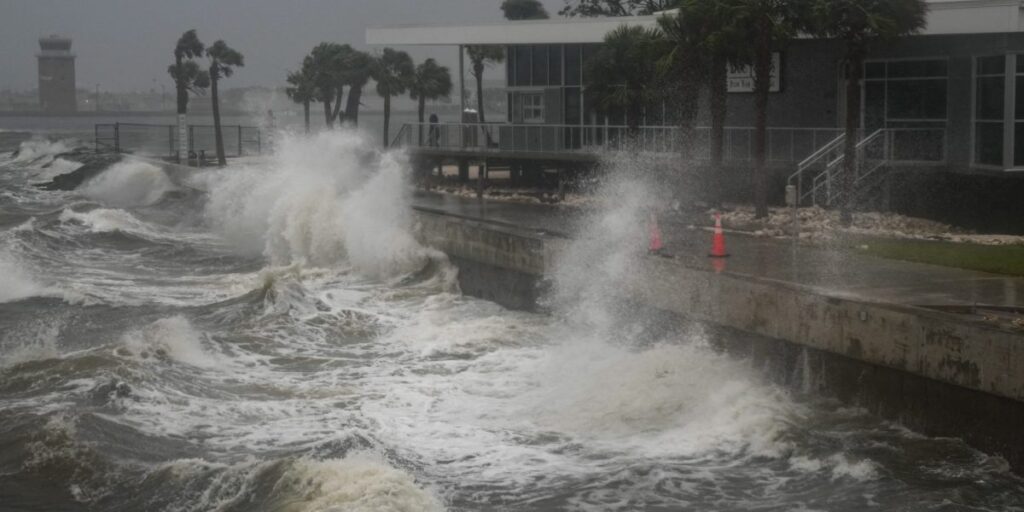Florida Home Sales Under Threat from Climate Risks
A stunning property on Anna Maria Island in Manatee County, Florida, recently faced a significant price drop. After Hurricane Helene’s landfall on October 2, the listing was reduced by $699,000, bringing the price down to $1.5 million. This bold move aims to attract buyers to a home currently labeled as “SOLD AS IS.”
Recent Price Reduction Details
The listing description outlines extensive damage caused by the hurricane, noting:
- Drywall Removal: Up to 36 inches of drywall removed throughout the house.
- Immediate Response: Dehumidifiers and fans have been operational 24/7 since the hurricane’s impact.
- Flooring and Appliances: Hardwood floors, lower cabinets, doors, appliances, and furniture were removed, dried, and sanitized with anti-fungal treatments.
However, potential buyers must approach this offer with caution due to the property’s substantial flood risk. According to Zillow and First Street’s climate risk assessments, the home has a 100% chance of flooding within the next 30 years, the average length of a mortgage in the United States.
The Bigger Picture: Florida’s Housing Market Slump
The question arises: Would you consider purchasing such a property? For many, the answer is a resounding no. Florida’s hurricane-prone nature is influencing home sales, particularly in coastal metropolitan areas. Despite a 2% increase in national pending home sales, Florida markets have seen a dramatic decline.
Notable Declines in Major Cities
- West Palm Beach: Pending sales plummeted nearly 18%.
- Tampa: A drop of 15.5% was recorded.
- Miami: Pending sales decreased by nearly 15%.
Factors Influencing Sales Decline
- The aftermath of Hurricane Helene has intensified a pre-existing slowdown in Florida’s housing market, exacerbated by rising costs for insurance and homeowner association (HOA) dues linked to climate change.
- Analysts believe the impacts of hurricanes on home sales may extend beyond immediate geographic areas, influencing buyer perceptions statewide.
The Condo Market in Crisis
Florida’s condominium market is particularly vulnerable, with increasing supply and declining prices:
- Tampa: Condo listings surged by 57%, while prices dropped 5%.
- Similar trends of rising inventory and falling prices are evident in Fort Lauderdale, Jacksonville, Miami, and Orlando.
Rising Costs
- Homeowner association fees are increasing due to heightened maintenance demands and growing insurance premiums. Multiple insurers are withdrawing from the market due to rising claims from catastrophic weather events.
Shifting Attitudes of Younger Generations
A recent survey by Redfin revealed that 30% of residents aged 18-34 are reconsidering their living situations after witnessing hurricane destruction. "Americans are starting to understand that virtually no area is immune to the impacts of climate change," stated Redfin’s Chief Economist.
The Pain of Unaffordable Housing
Buying a home has become increasingly unaffordable in Florida, compounded by steep insurance costs. Residents may have once perceived Florida as an affordable alternative to places like California, but prices have surged alarmingly in recent years:
- Homes have increased significantly in value compared to five years ago.
- Many homeowners face the dire reality of being uninsured.
Conclusion: A Cautionary Tale
As Florida faces a future increasingly dictated by climate risks and natural disasters, prospective home buyers must exercise caution. The dramatic price cuts may seem like an attractive opportunity, but the risks could outweigh the benefits. For those considering Florida’s vibrant real estate market, being informed about potential hazards is essential to making a wise investment.
For more insights on climate risks affecting real estate, explore First Street and Zillow for up-to-date assessments.


